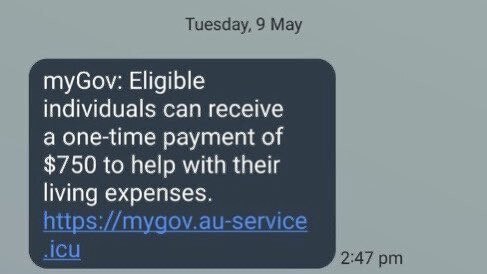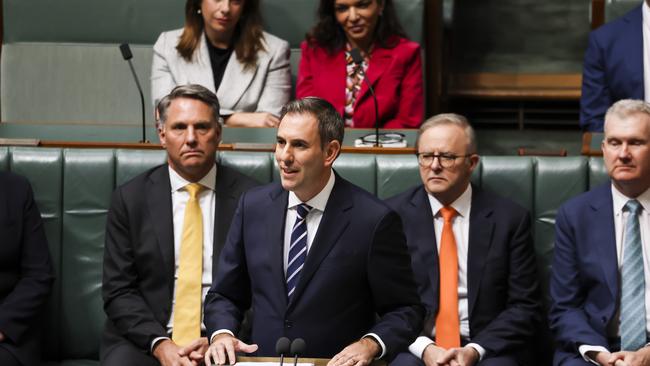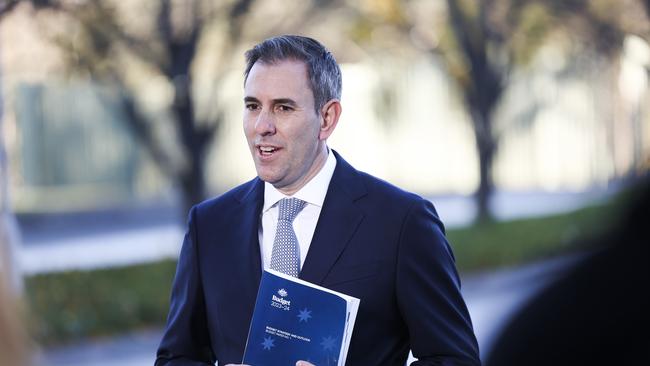Urgent warning over budget scams being sent via text messages
Scammers are already trying to defraud Australians out of their money using the federal budget, with politicians issuing a dire warning.
Scammers have wasted no time in using this year’s federal budget to try and steal money off of struggling Australians.
Text messages containing hyperlinks that would allow scammers to steal money from those doing it tough are already being sent via text message, Assistant Treasurer and Financial Services Minister Stephen Jones said.

“I’m hearing that scam texts like this are being sent tonight – don’t click on any links in texts messages,” he warned.
“Any message from MyGov will be in your MyGov inbox.”
The Australian Competition and Consumer Commission’s (ACCC) Scamwatch organisation warns consumers against rebate scams where cyber criminals convince individuals they are entitled to reimbursement from the government or tax office.
Australians have now been warned that these types of scams could include promises that they are eligible for payments from the government after the budget.
The budget has outlined several cost-of-living measures for those struggling with inflation, but none of these will be distributed via text message.
More than 1.1 million welfare recipients will have their payments boosted by $40 a fortnight from September if the government can push the change through parliament.
The increase will be applied to the regular payments of those on JobSeeker, Youth Allowance, Parenting Payment (partnered), ABSTUDY, Disability Support Pension (Youth) and Special Benefit.

Approximately 57,000 single parents will also benefit from a boost with their payments lifted by $176.90 per fortnight.
Labor has now lifted the age cut-off that would have payments lowered for parents after their child turned 8, with single parents to receive the benefit until their child is 14.
The government will also provide more than five million households with energy bill relief as a part of a deal between the states and the Commonwealth.
Relief will not be provided via cash or payments but will be applied directly to power bills as credits.
Those eligible include people on the pension, seniors card holders, and recipients of the family tax benefits A and B, but the amount received will depend on what state you live in.

Australians have already been warned that they’re at a heightened risk of being targeted by cyber criminals during this time of the year due to tax-related scams.
One in four Australians (24 per cent) has experienced a scam related to EOFY or tax matters according to new research from Commonwealth Bank (CBA).
However, the bank’s fraud experts are warning that scammers don’t necessarily wait until June 30, when people begin to file their tax returns, to find their targets.
Originally published as Urgent warning over budget scams being sent via text messages


